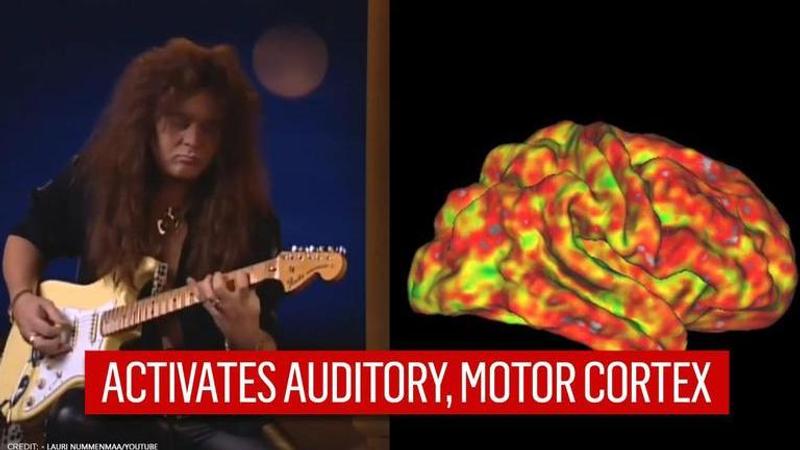Published 18:51 IST, December 30th 2020
Brain scans can predict music-induced emotions and melody: Study
Scientists used functional magnetic resonance imaging (fMRI) and machine learning to scan the brain of 102 research subjects at the national PET Centre.

Advertisement
Researchers can now predict what kind of music a person is listening to by scanning their brain. According to a study by researchers at the University of Turku, listening to music triggers a certain part of the human brain and by scanning the organ they can see what kind of tune is being played - sad or happy. Scientists used functional magnetic resonance imaging (fMRI) and machine learning to scan the brain of 102 research subjects at the national PET Centre.
"Based on the activation of the auditory and motor cortex, we were able to accurately predict whether the research subject was listening to happy or sad music. The auditory cortex processes the acoustic elements of music, such as rhythm and melody. Activation of the motor cortex, then again, maybe related to the fact that music inspires feelings of movement in the listeners even when they are listening to music while holding still in an MRI machine," said Postdoctoral Researcher Vesa Putkinen in a statement.
Do films & music activate same parts in brain?
Researchers also scanned the brain of the subjects to see if the same part of the organ is activated while watching films and videos. Researchers discovered that different mechanism in the brain triggers emotions while watching films, which is not the same as listening to music. The study concluded that films activate the deeper parts of the brain that regulate emotions in real-life situations.
"Listening to music did not strongly activate these regions nor did their activation separate the music-induced emotions from each other. This may be due to the fact that films can more realistically copy the real-life events that evoke emotions and thus activate the innate emotion mechanisms," the study said.
The research was conducted on subjects while they were asked to listen to 'Far Beyond the Sun' by Yngwie J. Malmsteen. The research has been published in the journal Celebral Cortex. A video has been shared to show how the brains of the volunteers reacted while listening to music.
18:53 IST, December 30th 2020



